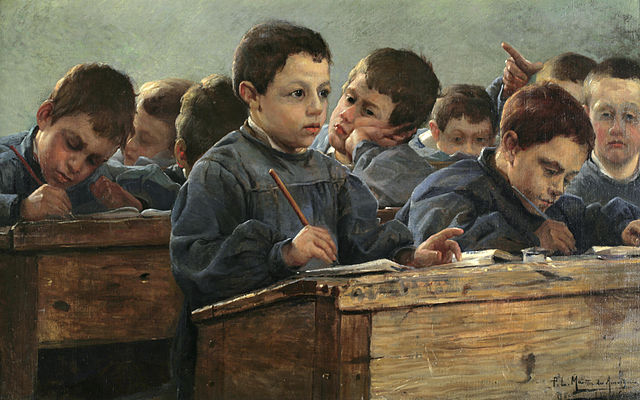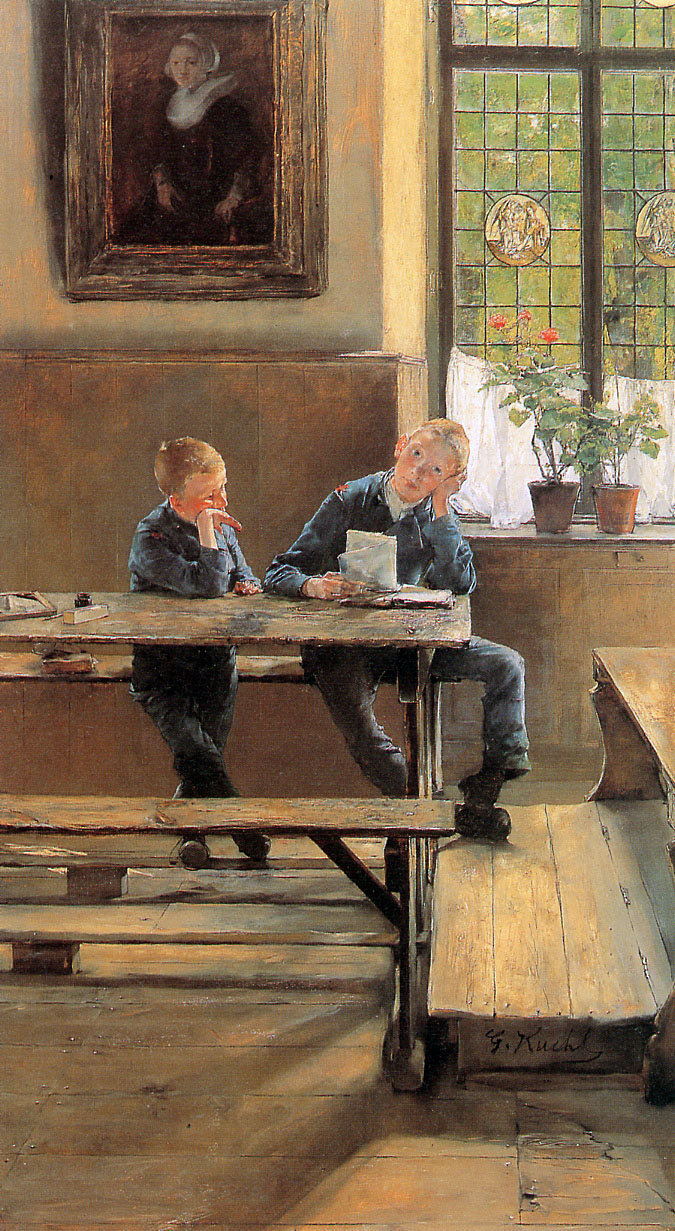
Avoiding spelling mistakes.
Education
The familiar noun education means the process of being instructed. Words that mean the same thing include:
Schooling
Instruction
Pedagogy
Coaching
Training
The Latin origins of the word suggest that education originally had something to do with leading out, or bringing out something that might be inside a person. So to educate someone means to guide the person but also help to draw out knowledge or understanding that the person may already have, possibly without being aware of it. This important word is sometimes spelled wrong in Thai English as eduction, and the related word educational is seen incorrectly spelled as eductional. While leaving out the letter a in both words may be due to simple carelessness, it also seems to be a result of not keeping in mind the relationship between educational and related words. The letters al that make education into educational are often seen, meaning of a kind, or being about, or taking a certain form or spirit of something. Obviously, something that is educational has to do with education. Once the letters al are added, the word becomes allied to many other words with the same ending, for example:
Congregational
Conjugational
Conversational
Demonstrational
Denominational
Dissertational
Foundational
Generational
Gravitational
Improvisational
Informational
Inspirational
Interdenominational
Interpretational
Invitational
Motivational
Navigational
Notational
Occupational
Operational
Organizational
Recreational
Representational
Sensational
Situational
Transportational
Vocational.
In all of the above words, the letter a plays a key role. While eduction does exist as a rare English word, meaning to draw out, it should not be confused with education. To sidestep this mistake, it may help to keep in mind a short sentence that will prevent confusing, such as:
Without my education, I would never have written a dissertation.
The book was not only educational, it was also sensational.
The student’s thesis presentation was educational and inspirational.
By associating sometimes difficult words with others that we are less likely to spell wrong, we add to the probability that all the words in question will be spelled correctly.

Practice
The noun practice means applying an approach or thought, instead of just thinking about it. By putting something into practice, we get real-life experience about how it works. Doctors are said to have a medical practice, which means they are busy doing medicine, and not merely studying the subject. Practice can also mean the usual way things are done, as in the phrase accepted practice, or the traditional custom. Practice also means to repeat something while trying to get it right, as in practicing a musical instrument or practicing to speak English without an accent. Originally in Latin the word meant something like performing or carrying out, and it still has a meaning of active effort, of doing something. This useful word with different meanings is sometimes spelled wrong in Thai English as pratice. This is another example of an error in which an essential letter, in this case the letter c, is left out. In the case of practice, it does not help to look at words with similar endings, since the only other word in common English usage that also ends with the letters ctice is malpractice, which clearly derives from practice. Doctors are familiar with the term malpractice, which means poor professional behavior, but is usually used when a doctor makes a mistake, and a lawsuit may result. Students and researchers who are not doctors and do not have doctors in the family probably do not use this word often. Instead, a more simple approach may be best. It may be useful to remember that practice has something to do with action and activity. There can be no practice if a person does not act. If we recall that the letters act must be at the heart of practice, it is less likely we will omit the letter c.

Holistic
Sometimes wrong spellings happen for complex reasons. There can be a certain logic to the mistaken approach to the word, but it is an error all the same. This can be seen in the adjective holistic, meaning to deal with the entirety of something rather than section by section. Often we see references to holistic medicine or a holistic solution to a problem. Doctors interested in holistic medicine study not just whatever the particular problem the patient may be feeling on a given day, but also the larger picture of emotional and social issues the person may be confronting. A holistic approach to social issues expresses a belief that things are interconnected and are best understood as part of a complex web rather than looked at one by one. In Thai English, this word is sometimes spelled wrong as wholistic. People who spell holistic in this incorrect way may actually understand its meaning, and think that since it is important to look at the whole picture, or the whole patient, the word should be spelled wholistic. This does make a certain degree of sense, and would be admirable logic, except for the fact that this is not the way the word is spelled in standard English. In the example of holistic, it may be necessary to think against what might seem a reasonable approach to spelling, and go against instinct to get things right. Part of the reason for the potentially confusing spelling of this word is that it was invented fairly recently. The etymology seems to date back only to 1926, when Jan Christiaan Smuts, a South African statesman and military leader invented the term holistic for a book, Holism and Evolution. General Smuts made up the words holism and holistic from the Greek word holos, meaning whole. This study of things in their entirety was given a spelling that some may find unusual, but since it has been used for 90 years, that it the way it must be spelled. Rather than trying to figure it out, a simple phrase might be invented to better recall the correct spelling. It can be a silly image that will keep us from any mistake. Examples follow:
The holistic philosopher fell into a hole in the street.
My doctor thinks holistic medicine is holy.
If we keep one of these phrases in mind, even if they have no serious meaning, it may help to avoid errors in future spellings of the word.

(all images courtesy of Wikimedia Commons)
